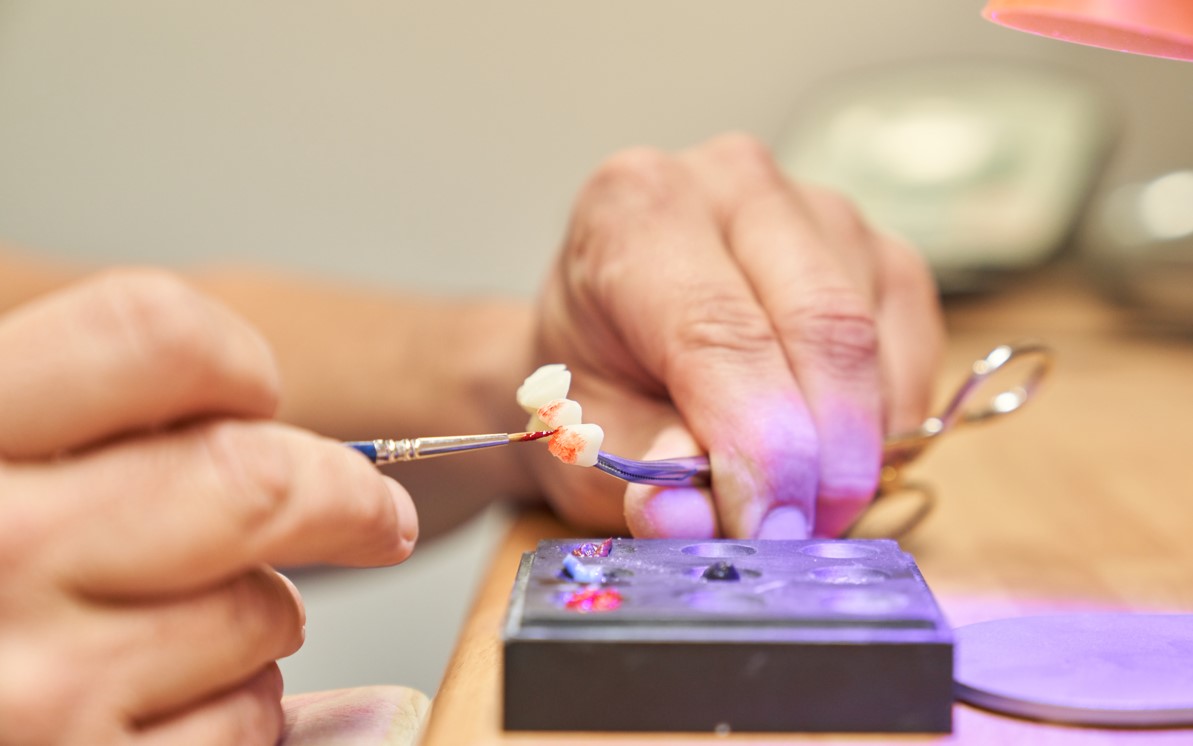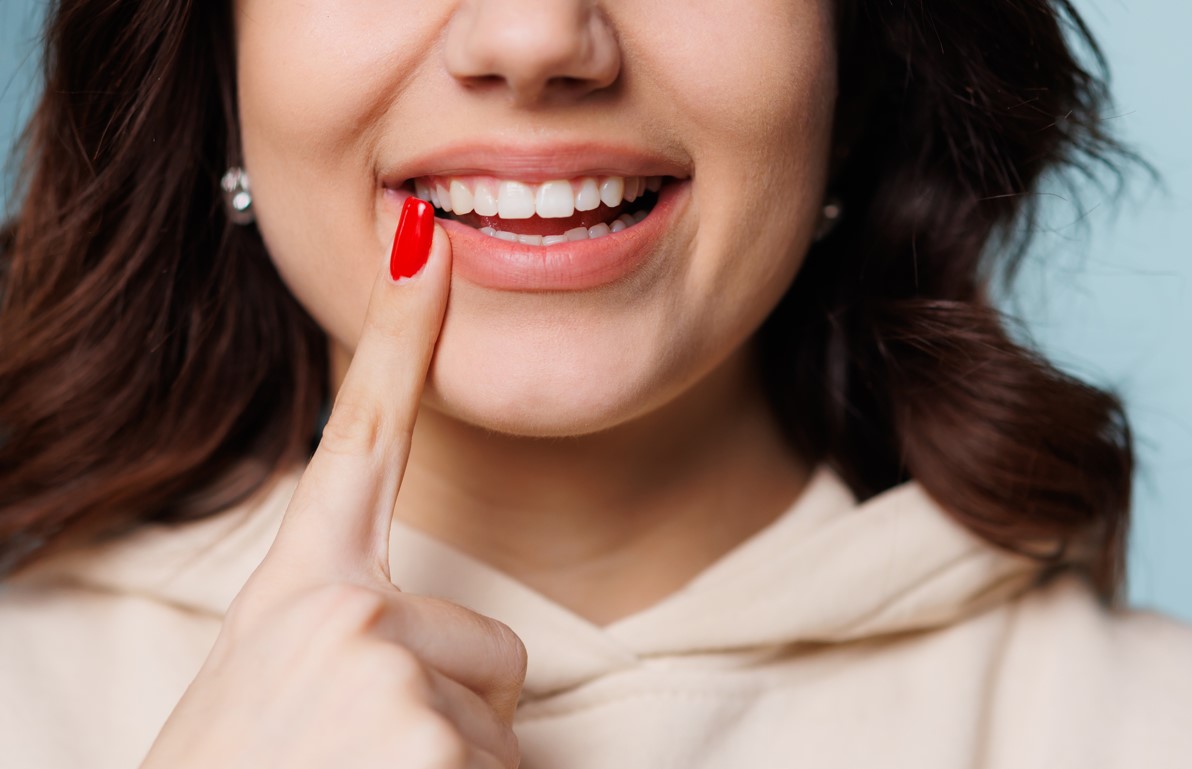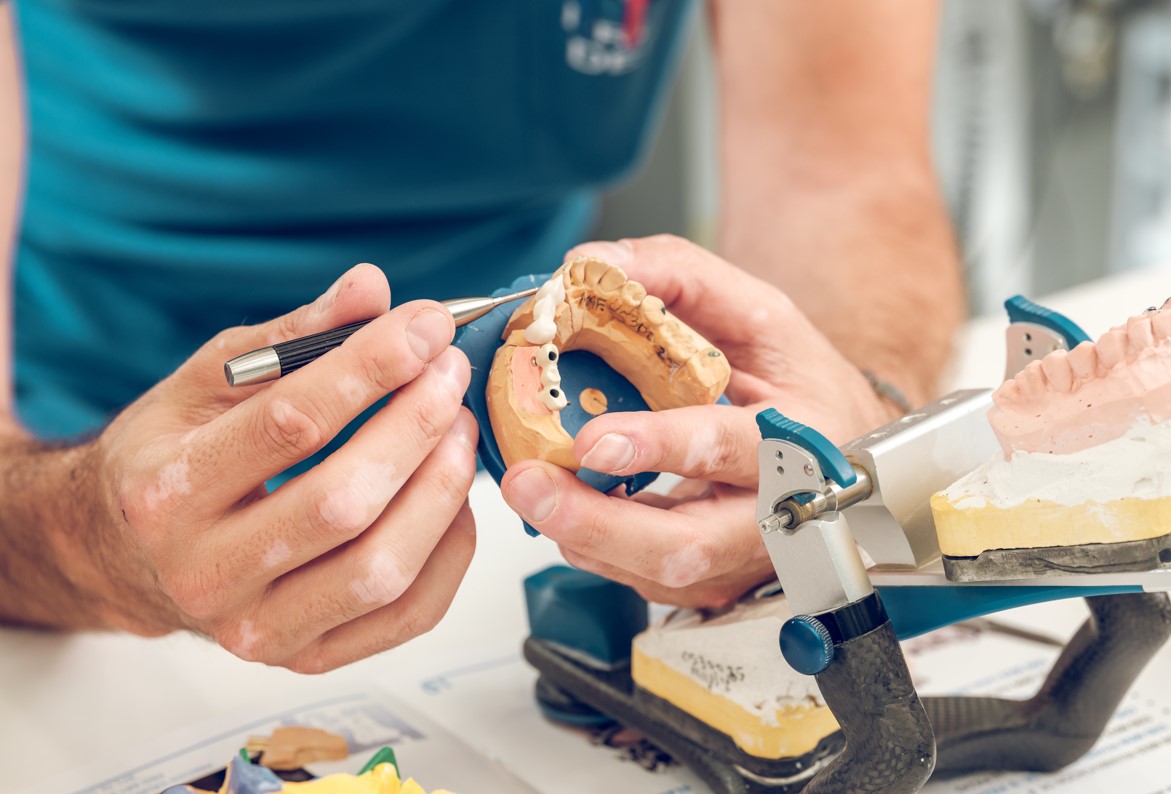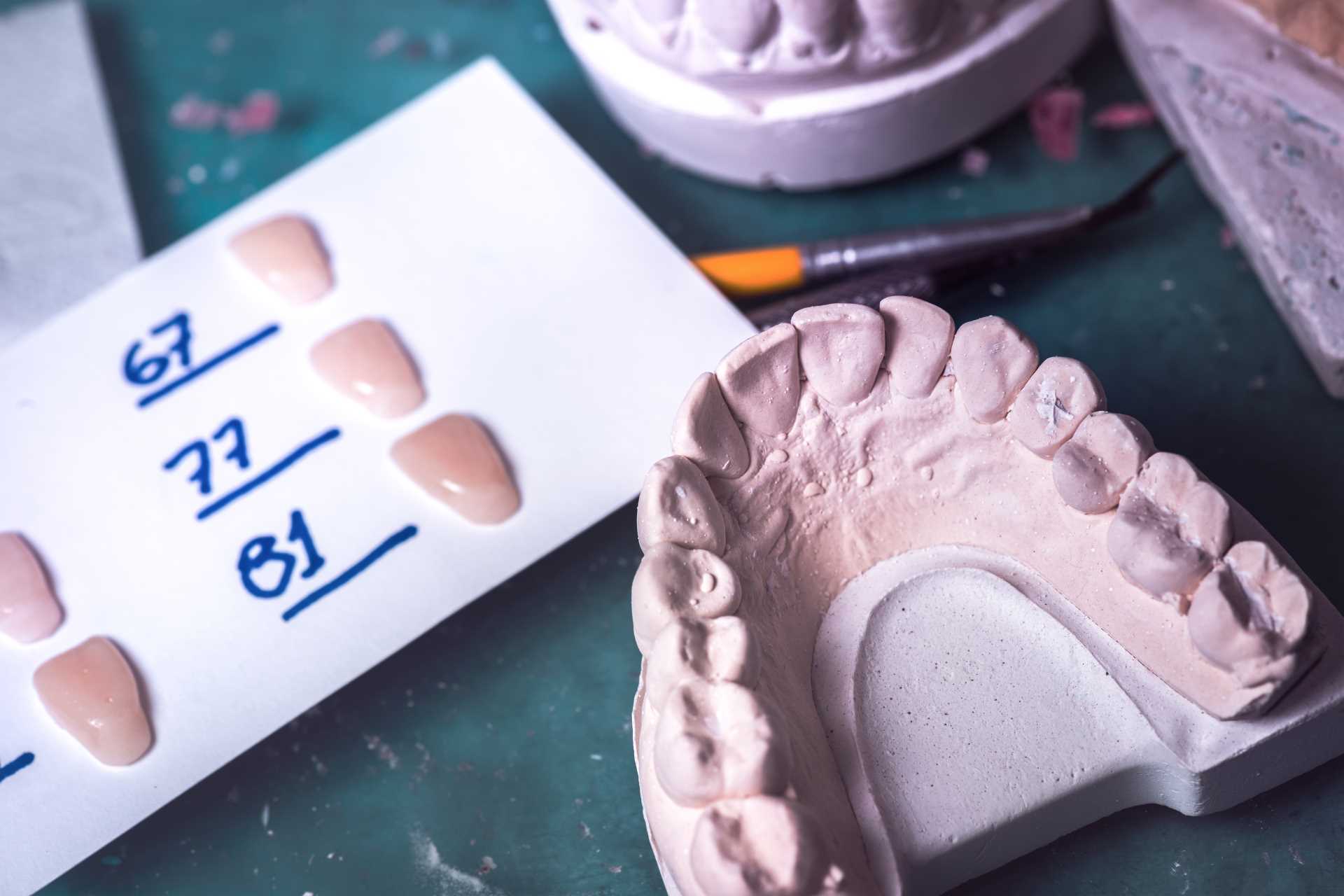False Teeth vs Dentures, Are They the Same Thing?
When you think of false teeth, you likely envision a pair of dentures sitting in a glass of water. But what exactly are false teeth and is there a difference between false teeth vs dentures?
There are a lot of terminologies when it comes to dental procedures but the term ‘false teeth’ is just another way to say dentures. Dentures or ‘false teeth’ are made out of acrylic or porcelain, that come in either partial or full options. Available in a variety of shapes and colours, dentures are custom created to suit your mouth so that they appear as natural as possible.
When it comes to thinking about ‘false teeth vs dentures’, it’s interesting to factor in the origins of false teeth and how we’ve come to have the fantastic options we have today. Here at Denture Health Clinic, we thought we’d take a quick look at the history of dentures, and how false teeth got their name.
False teeth vs dentures: a brief history
Did you know that the first pair of false teeth were not false at all? First used in roughly the 7th century, the earliest pair of dentures recorded were created with either animal or human teeth. However, it wasn’t until the 16th century that dentures were fashioned with materials not derived from humans, with woodworkers in Japan hand carving wooden dentures that could be applied using beeswax as a glue. Considered an advanced technique for that area, dentures were adopted in the western civilisation by the 18th century – this time, made from porcelain. As the porcelain was susceptible to chipping, the process had to be continually improved upon. This also coincided with the introduction of sugar, which saw more and more people in dire need of replacement teeth.
Despite these technological advancements, false teeth created with mineral materials were still not as durable as human teeth, so the need for human donors grew. The 1815 battle of Waterloo saw a boom in human teeth dentures, as dead soldiers on the battlefield were quickly scavenged for teeth. Thankfully, the techniques used to create dentures began to improve with the addition of knowledgeable goldsmiths, who were able to improve reinforce porcelain with golden plates and swivels – meaning that ‘false teeth’ were eventually able to replace the need for human donors.
In 1850, the introduction of a hard rubber called vulcanite significantly improved the denture base, which made dentures a lot more durable. Now, in the 20th century, dental prosthetists create dentures with various types of acrylic resin and porcelain.
False teeth vs dentures: Modern dentures
A far cry from the days where dentures were made from human teeth and blocks of wood, modern dentures are made with either acrylic resin, porcelain, or a combination of the two. They can also be fortified with metal if the wearer is susceptible to breaking dentures or requires a more supportive fit. The base of your dentures will likely be made from acrylic resin, which is used in most dentures as it’s an easy material to adjust and is tolerated quite well.
Considering the fit and suction of false teeth, modern dentures are more comfortable and last a lot longer than their historic counterparts. Luckily, in the modern age, false teeth are less common but for those who do need them, modern advances in dentistry have made dentures far more affordable and easier to wear.
We hope we’ve answered your questions on ‘false teeth vs dentures.’
If you’re interested in finding out more about dentures Brisbane wide or have any questions relating to denture care, get in touch with us at Denture Health Care today.
Related Posts

Foods to Avoid with Dentures
Foods to Avoid with Dentures Dentures are a majorly beneficial and life changing solution for many people around the world, however, that doesn’t mean they don’t come with responsibility and the need for proper upkeep. It’s important to ensure you’re eating the correct foods and drinking the right drinks that keep your dentures intact and

Do Partial Dentures Look Natural?
Do Partial Dentures Look Natural? The simple answer is yes, partial dentures can look natural. But there are a few things you need to know in order to make sure that yours look their best. Partial dentures are specifically designed to match the shade and shape of your existing teeth, so they should blend in

Dentures and Saliva – What You Need to Know
Dentures and Saliva – What You Need to Know If you wear dentures, saliva problems may be an issue that you have to deal with on a daily basis. Dentures and saliva have a complex relationship. Saliva helps to keep your mouth moist and aids in the digestion of food as well. Without enough saliva,

Can You Get Same Day Dentures: An Informative Guide
Can You Get Same Day Dentures: An Informative Guide Same day dentures are generally referred to as immediate dentures and are often so used as a resolution and replacement for individuals who have had teeth removed. Although they are an immediate solution, they are only temporary to fill in the missing space in the gums.

How Are Dentures Made?
How Are Dentures Made? Have you ever wondered how are dentures made? As dental prosthetists, we get asked this question a lot, so we set out to answer the question of how are false teeth made and shed some light on the denture making process. How are Dentures Made to Perfectly Fit Each Individual Patient?

Famous People with False Teeth
Famous People with False Teeth We know that getting dentures can be a daunting new experience, and you may feel insecure about your new set of teeth. All of this will go away once you’re used to your pearly whites, and the uncomfortable sensation you’re feeling will subside. No matter your age, there’s no need
We do whatever it takes to bring you peace of mind
1300 304 092
Call us today
